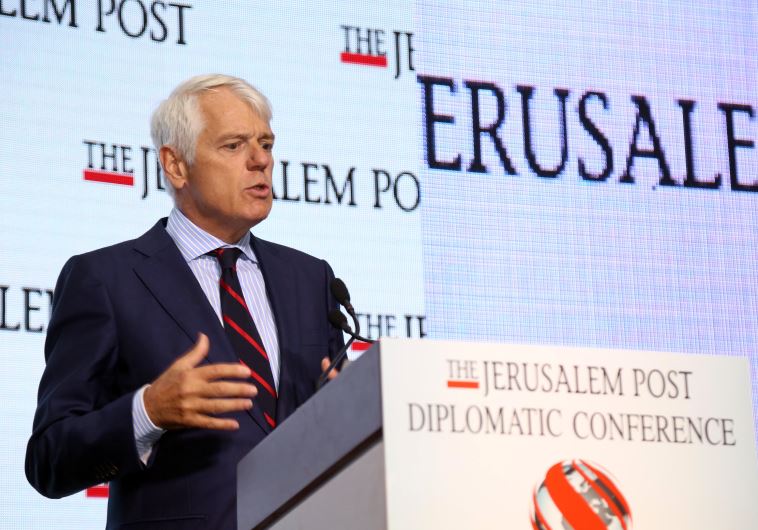Foreign Ministry slams EU envoy for something he never actually said
Faaborg-Andersen made distinction in Tuesday interview between terrorism in Europe and in Israel, radio station clarifies.
 Lars Faaborg-Andersen at the Jerusalem Post's Diplomatic Conference(photo credit: SIVAN FARAG)
Lars Faaborg-Andersen at the Jerusalem Post's Diplomatic Conference(photo credit: SIVAN FARAG)